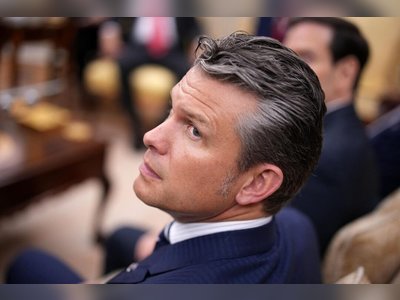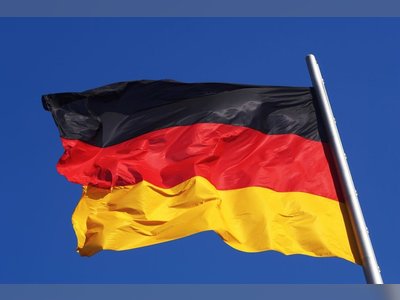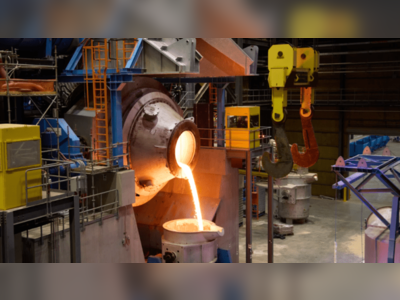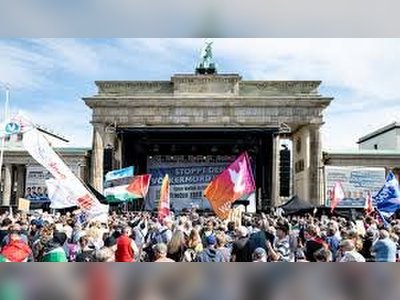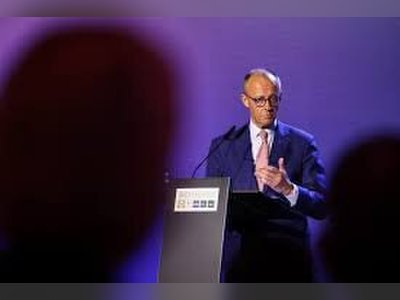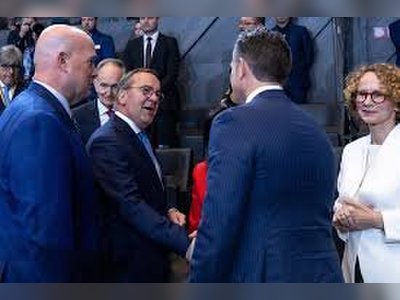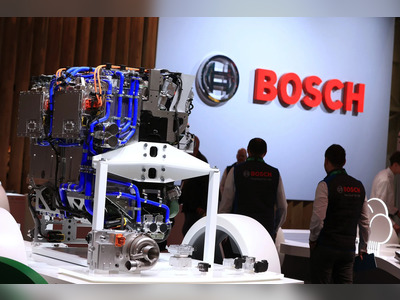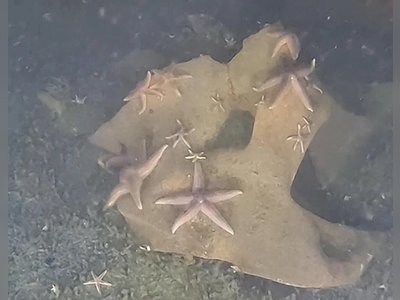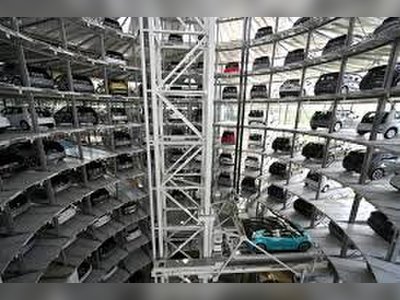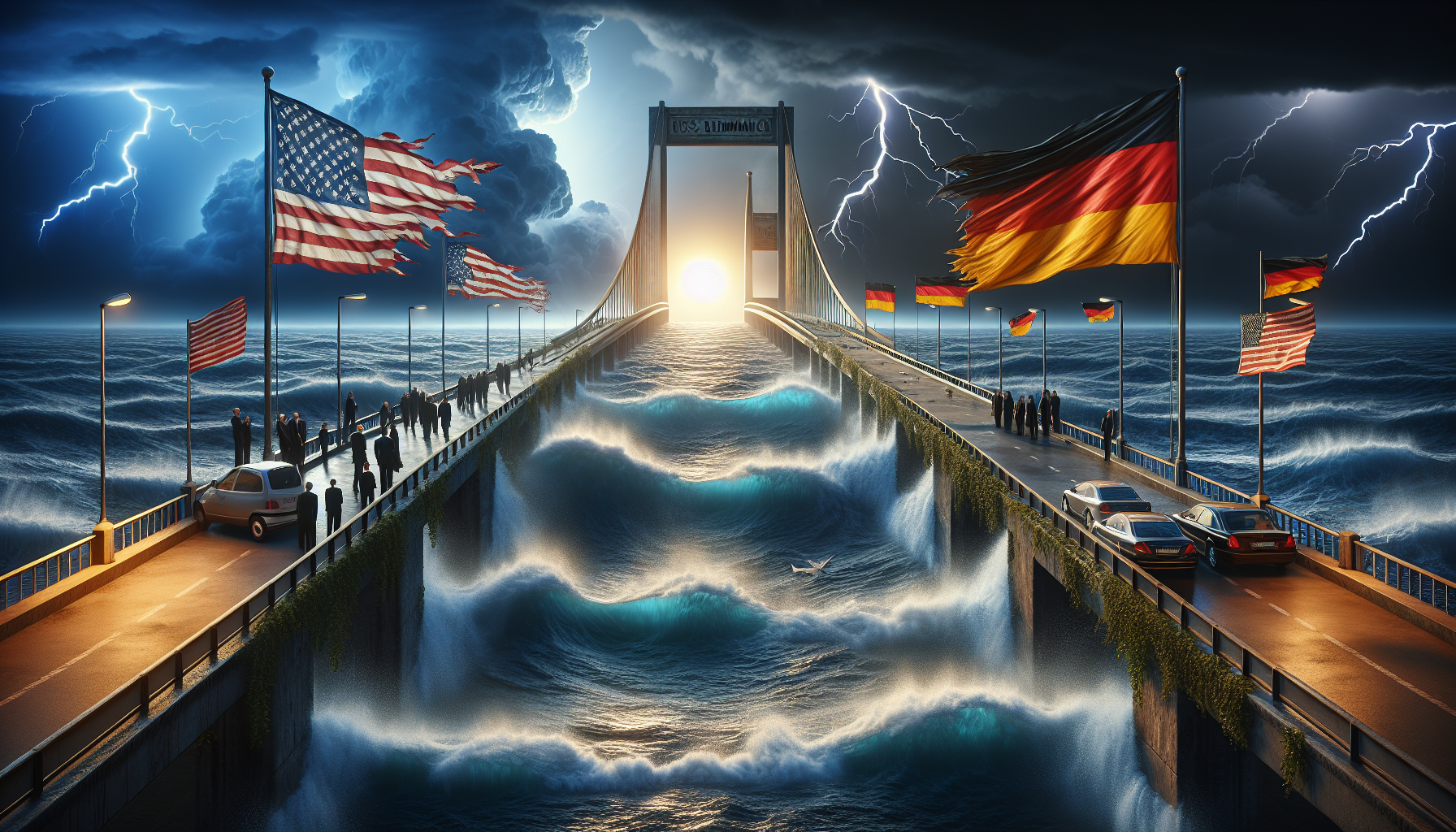
Transatlantic Relations in Turmoil: German Reactions to Donald Trump's Policies
US tariff threats and controversial political alliances stir German political landscape
Donald Trump has been stirring significant concern among German politicians with policies threatened to end climate agreements and impose tariffs on European goods.
Despite these tensions, German Chancellor Olaf Scholz congratulated Trump on his inauguration, emphasizing potential for cooperation in achieving transatlantic prosperity and security.
Chancellor Scholz and opposition leader Friedrich Merz were notably absent from Trump's inauguration, which invited like-minded political figures such as Italian Premier Giorgia Meloni and Argentinian President Javier Milei.
German diplomats expressed a preference for Democratic candidate Kamala Harris to take office, reflecting broader concerns about Trump's policies.
The far-right Alternative for Germany (AfD) party remains supportive of Trump, with endorsements from figures like Elon Musk.
Tensions escalated following a leaked diplomatic cable by German Ambassador Andreas Michaelis which criticized Trump's approach to democratic principles.
CDU leader Friedrich Merz, considered a potential future German chancellor, warned the diplomatic incident could damage German-American relations.
However, Merz advocates for a united European approach in dealings with the US, calling for European solidarity.
The German Chamber of Commerce and Industry has raised alarms over potential US tariffs, emphasizing the German economy's reliance on exports.
Economic Affairs Minister Robert Habeck echoed these concerns, stating Europe is ready to respond with countermeasures.
Former Chancellor Angela Merkel highlighted the importance of the transatlantic alliance, noting its crucial role in ongoing geopolitical issues like the conflict in Ukraine.
While Scholz was not invited to the US inauguration, AfD politicians Tino Chrupalla and Beatrix von Storch were present, signaling Trump's closer ties with this particular party in Germany.
Despite these tensions, German Chancellor Olaf Scholz congratulated Trump on his inauguration, emphasizing potential for cooperation in achieving transatlantic prosperity and security.
Chancellor Scholz and opposition leader Friedrich Merz were notably absent from Trump's inauguration, which invited like-minded political figures such as Italian Premier Giorgia Meloni and Argentinian President Javier Milei.
German diplomats expressed a preference for Democratic candidate Kamala Harris to take office, reflecting broader concerns about Trump's policies.
The far-right Alternative for Germany (AfD) party remains supportive of Trump, with endorsements from figures like Elon Musk.
Tensions escalated following a leaked diplomatic cable by German Ambassador Andreas Michaelis which criticized Trump's approach to democratic principles.
CDU leader Friedrich Merz, considered a potential future German chancellor, warned the diplomatic incident could damage German-American relations.
However, Merz advocates for a united European approach in dealings with the US, calling for European solidarity.
The German Chamber of Commerce and Industry has raised alarms over potential US tariffs, emphasizing the German economy's reliance on exports.
Economic Affairs Minister Robert Habeck echoed these concerns, stating Europe is ready to respond with countermeasures.
Former Chancellor Angela Merkel highlighted the importance of the transatlantic alliance, noting its crucial role in ongoing geopolitical issues like the conflict in Ukraine.
While Scholz was not invited to the US inauguration, AfD politicians Tino Chrupalla and Beatrix von Storch were present, signaling Trump's closer ties with this particular party in Germany.
Translation:
Translated by AI
AI Disclaimer: An advanced artificial intelligence (AI) system generated the content of this page on its own. This innovative technology conducts extensive research from a variety of reliable sources, performs rigorous fact-checking and verification, cleans up and balances biased or manipulated content, and presents a minimal factual summary that is just enough yet essential for you to function as an informed and educated citizen. Please keep in mind, however, that this system is an evolving technology, and as a result, the article may contain accidental inaccuracies or errors. We urge you to help us improve our site by reporting any inaccuracies you find using the "Contact Us" link at the bottom of this page. Your helpful feedback helps us improve our system and deliver more precise content. When you find an article of interest here, please look for the full and extensive coverage of this topic in traditional news sources, as they are written by professional journalists that we try to support, not replace. We appreciate your understanding and assistance.
